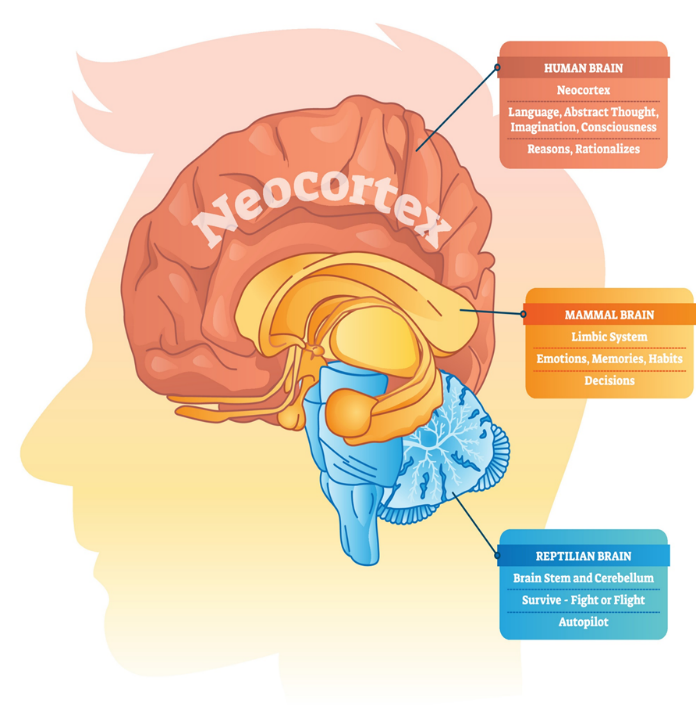
iStock
What are the most common topics covered in leadership development programs? According to my survey of 153 organizations, the topics most commonly focused on were:
- Communication and interpersonal skills – 72% of organizations
- Developing management skills (e.g., planning) – 54% of organizations
- Leadership styles (e.g., transformational, servant leadership) – 50% of organizations
- Coaching skills – 50% of organizations
- Performance management – 45% of organizations
- Engagement and/or motivation – 42% of organizations
To help put this into context, only 33% of these organizations could “strongly agree” or “agree” that they are effective at developing their leaders.
On the surface, these figures suggest that most leadership development programs may be missing the mark. Knowing this and seeing the list of the most commonly focused on topics, now ask yourself:
- Does this constitute the best topics for developing leaders?
- What is missing that would help organizations become more effective at developing leaders?
The Next Frontier of Leadership Development
One primary area of focus that is missing is on a part of a leader that control’s that leader’s interpersonal skills, management skills, leadership style, coaching skill, and ability to coach and motivate others: the leader’s mind.
Reflect for a moment: when did the primary ideas associated with our current leadership development philosophies originate? The vast majority of these primary ideas originated pre-2005.
This is important to point out because, it really wasn’t until 2005 that technology was developed to adequately study the mind. In fact, brain experts state that we have learned more about the mind in the last 15 years than all of history before that.
 Consider this chart that shows the number of neuroscience dissertations by year for the last 50 years.
Consider this chart that shows the number of neuroscience dissertations by year for the last 50 years.
This means that almost all leadership development ideas essentially ignore the foundational part of why a leader does what he or she does.
As we learn more about the part of leaders that is foundational to how they process and operate (i.e., their mind), it becomes critical that we integrate this understanding into our leadership development efforts.
The basic assumption is: If we can improve how leaders process and operate in their mind, we can more readily improve their effectiveness.
In all, neuroscience research and a greater understanding of the brain opens the door for the next frontier of leadership development: the leader’s mind.
Harnessing the Power of the Mind in Leadership Development
To understand how to harness our knowing of the mind in leadership development, it is helpful to know two things:
- The three regions of the brain
- The neural circuit boards that connect these three regions
 The Three Regions of the Brain
The Three Regions of the Brain
There are three regions of the brain:
- Basal Ganglia (Reptilian Brain) – In charge of body sensations and impulses. It is what rapidly gets us into fight/flight/freeze mode if it senses or interprets danger.
- Limbic System (Mammalian Brain) – It is in charge of emotions, feelings, and implicit memory, which greatly inform and influence decisions.
- Neocortex (Human Brain) – It is in charge of thought, verbal expression, and emotional intelligence. Everything below this brain region is largely instinctual and reactive. This is the part of our brain that allows for rationality and responsiveness.
Our Mind’s Circuit Board
There are long-range neural connections that connect all three regions of the brain. They are called cortico-cortical connections. Because they span and connect all three regions of the brain, they effectively serve as our brain’s circuit board.
Most know these cortico-cortical connections as mindsets.
Our mindsets are the long-range neural connections in our brain that operate as our brain’s circuit board by performing three primary operations:
- Since our body sends our brain way more information than we can process, our mindsets first filter in the most important and valuable information (largely occurs in the basal ganglia).
- Our mindsets then put meaning on, or interprets, this information, largely based upon our memory and past experiences (largely occurs in our limbic system).
- Based upon the information filtered in and how it is interpreted, our mindsets activate the different traits and goal-regulation strategies to best respond to what we have filtered in and interpreted.
Let me give you an example of how this works, looking at two different leaders encountering the same situation: getting pushback from a subordinate.
Leader #1 has a closed mindset. When the pushback is given, immediately the basal ganglia filters this in as being important information. Then, the limbic system connects back to prior memories to determine how to respond to the feedback. Generally, someone with a closed mindset will interpret this pushback as a threat. As a result, the leader gets defensive and dismisses the employee’s ideas.
Leader #2 has an open mindset. When the pushback is given, immediately the basal ganglia filters this in as being important information. Then, the limbic system connects back to prior memories to determine how to respond to the feedback. Generally, someone with an open mindset will interpret this pushback as valuable information that might be helpful for improving the team’s thinking. As a result, the leader takes in and validates the employee’s ideas.
What Mindsets Do Leaders Need to Have?
If leaders’ mindsets are central to how leaders process and operate, they need to become a primary focus when developing leaders. This is perhaps the best way we know how to focus on the mind as part of leadership development.
But, something that often holds organizations up from focusing on mindsets is that they don’t know what mindsets to focus on.
I have scoured the academic literature to identify mindsets that have been researched and have been continually demonstrated to impact how people think, learn, and behave. From this research, I have identified four mindsets that have been repeatedly found to lead to optimal processing and operation for leaders. They are:
- Growth Mindset: The belief that people can change their talents, abilities, and intelligence, leading to a focus on learning and growing
- Open Mindset: The belief that one can be wrong, leading to a focus on thinking optimally, and finding truth
- Promotion Mindset: Having a meaningful destination that one is working toward (i.e., focus on winning), leading to a willingness to do the difficult but necessary things to get to that destination
- Outward Mindset: The believe that others are just as important as oneself, leading to one seeing others as people and valuing them as such
Conclusion
I hope this article has done three things for you:
- Helped you see how important it is to focus on the mind when developing leaders
- Helped you see that a focal aspect of the mind that is optimal for development is mindsets
- Helped you know what mindsets you should focus on when developing your leaders
